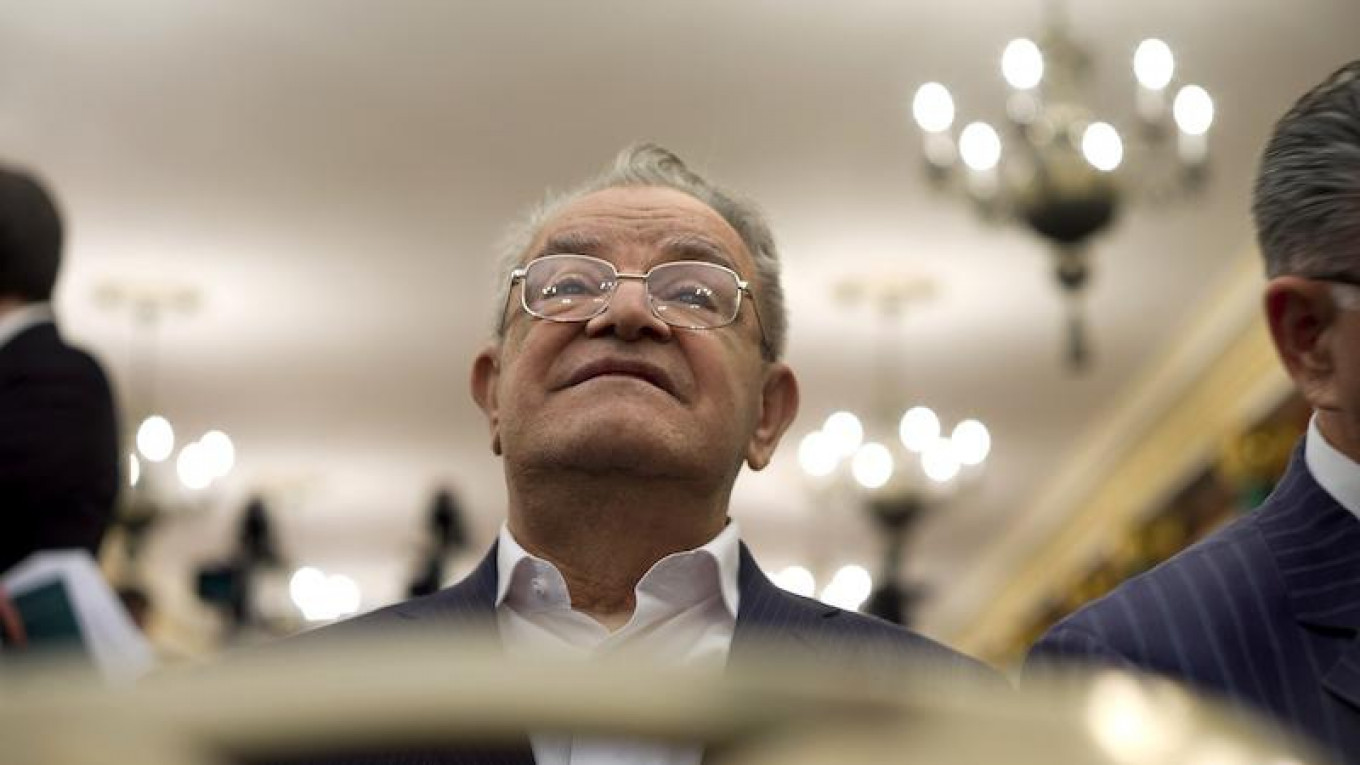Fazil Iskander, a veteran of Soviet literature, died on Sunday aged 87 following an extended illness.
Born in 1929 in Abkhazia — then part of the Soviet Union — Iskander’s stories blended realism, fantasy and irony with an underlying thread of humor.
Iskander, the son of an Iranian father and Abkhazian mother, lost his father at a young age when he was deported to an Iranian penal camp and subsequently died in 1938. Raised by his extended Abkhazian family, Iskander moved to Moscow and graduated from the prestigious Gorky Literary Institute in 1954.
Iskander never shied away from satirizing and ridiculing Soviet bureaucracy, injustice and corruption in his works. Although he wrote exclusively in Russian, translations of his novels such as "Sandro of Chegem" — published abroad in 1983 — led literary critics to compare him with Mark Twain.
The strong regional flavor of the novel and its picaresque nature highlight Iskander’s unique capacity for human observation.
His profoundly witty take on life in his native Abkhazia and the flaws of the Communist regime led him to international acclaim, despite the fact that some his manuscripts were heavily censored by Soviet authorities prior to publication.
In 2013 Iskander accepted the Russian Federation National Award in Literature and Arts from President Vladimir Putin for his services to literature.
A statement on the Kremlin website said: "Vladimir Putin expressed his sincere condolences to the family of Fazil Iskander and to all admirers of his talent in connection with the writer’s death."
Iskander’s compassionate, lyrical and deeply funny writing provides a unique window to the past while remaining strikingly relevant to contemporary life. His blend of folkloric tales from the Caucasus with masterful prose has solidified his stance as one of the classic authors of Russian-language literature.
A Message from The Moscow Times:
Dear readers,
We are facing unprecedented challenges. Russia's Prosecutor General's Office has designated The Moscow Times as an "undesirable" organization, criminalizing our work and putting our staff at risk of prosecution. This follows our earlier unjust labeling as a "foreign agent."
These actions are direct attempts to silence independent journalism in Russia. The authorities claim our work "discredits the decisions of the Russian leadership." We see things differently: we strive to provide accurate, unbiased reporting on Russia.
We, the journalists of The Moscow Times, refuse to be silenced. But to continue our work, we need your help.
Your support, no matter how small, makes a world of difference. If you can, please support us monthly starting from just $2. It's quick to set up, and every contribution makes a significant impact.
By supporting The Moscow Times, you're defending open, independent journalism in the face of repression. Thank you for standing with us.
Remind me later.






